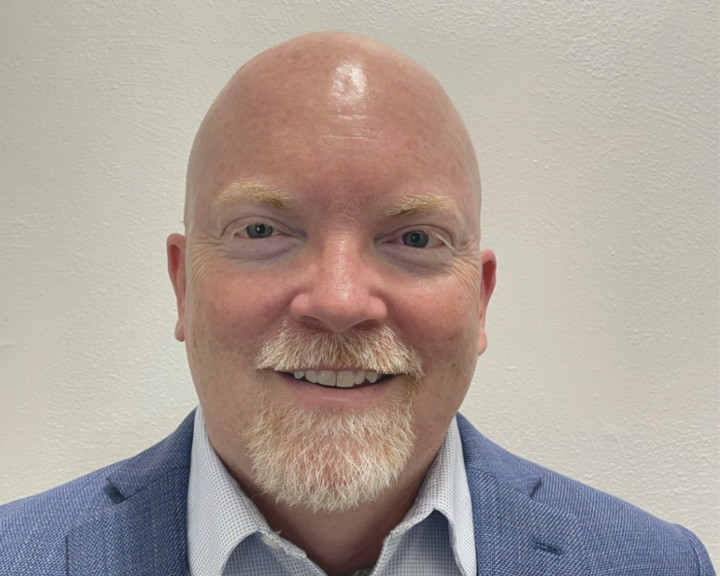RamaOnHealthcare May 13, 2024
Meeting Mental Health Needs Where & When Needed
Today, RamaOnHealthcare welcomes two guests to share the experience and insights of Kooth Digital Health.

Rushil Desai, CEO of Aetna Better Health® of Illinois

Bob McCullough, VP of Clinical Strategy at Kooth Digital Health
We recently sat down with Aetna Better Health® of Illinois CEO Rushil Desai and Bob McCullough, VP of clinical strategy for Kooth Digital Health, to talk about why this partnership, and similar partnerships like it, are so critical for teens and young people.
Kooth Digital Health, a mental health and well-being platform for young people, recently announced a partnership with Aetna Better Health® of Illinois, which will provide free mental health and wellness tools to thousands of teens and young people across Illinois.
RamaOnHealthcare (ROH): Thank you for joining us today. Can you tell us about Aetna Better Health® of Illinois and its mission?
Rushil Desai (RD): Aetna Better Health® of Illinois offers access to quality, affordable healthcare to individuals through the state’s HealthChoice Illinois Medicaid program. We serve 400,000 members in 102 counties. Seventy percent of our members are a part of the Temporary Assistance for Needy Families (TANF) population and have a strong need for behavioral health tools and resources. We are committed to keeping our members first by providing them with whole-person care that fosters physical and behavioral health, making healthcare equitable for all, and building trusted partnerships to ensure our members receive quality care.
Seventy percent of our members are a part of the Temporary Assistance for Needy Families (TANF) population and have a strong need for behavioral health tools and resources.
ROH: This partnership with Kooth will give thousands of young people access to mental health and well-being tools they might not otherwise have. Why was it important for Aetna to partner with Kooth to provide this platform?
RD: Data shows that teens and young people benefit from access to well-being tools to help develop better skills and mental health management. According to a National Alliance for Mental Illness report, 61.8% of 12- to 17-year-olds in Illinois who have depression did not receive any care. The same report indicates high school students with depression are more than twice as likely to drop out than their peers, and seven in 10 youth in the juvenile justice system have a mental health condition. Our partnership with Kooth directly targets and benefits this population.
…high school students with depression are more than twice as likely to drop out than their peers, and seven in 10 youth in the juvenile justice system have a mental health condition.
Together, we’re delivering real-time digital support for young people facing very complex behavioral health issues. Through this platform, we strive to support these young people before a crisis occurs by partnering with schools in Illinois to help roll out this app to their students. Young people are glued to their phones and although they have tons of friends on social media, studies show young people are more lonely than older adults because they have trouble fostering meaningful relationships. Schools are struggling to identify kids at risk and provide the care they need. Our partnership with Kooth gives this population access to behavioral health care in the palm of their hands so they can be empowered to seek help whenever they may need it.
…studies show young people are more lonely than older adults….
ROH: What is Kooth and how does it work? Where can teens and young people access it, beyond this partnership?
Bob McCullough (BM): Worldwide, 17 million people have access to Kooth’s support through an online platform or app, helping teens and young people dealing with stress, anxiety, depression, and other challenges. Here in the U.S., Kooth Digital Health supports approximately 100,000 students across Pennsylvania. In California, more than 6 million 13-to 25-year-olds have free access to Kooth’s platform through Soluna, which the state Department of Health Care Services launched in January 2024 as part pf a historic $4.7 billion commitment to youth mental health.
Kooth was first developed more than two decades ago and has since become a global leader in preventative mental health and well-being support through 24/7 online access to Kooth’s mental health and well-being platform.
Kooth was first developed more than two decades ago and has since become a global leader in preventative mental health and well-being support through 24/7 online access to Kooth’s mental health and well-being platform.
Our research indicates young people value the model, specifically its anonymity, ease of access (24/7 availability from their phones or tablets). The ability to take control of their own mental health journey without the complicated referral process is replaced by the ability to communicate with practitioners in real time. Our unique moderated peer forum is a highly sought-after tool for young users that increases engagement and helps users feel supported and heard while improving overall well-being.
After one month of using Kooth, user data demonstrates:
- Psychological distress decreased by 10.79%
- Suicidal thoughts decreased by 8.48%
- Reported self-harm decreased by 20%
- Loneliness decreased by 12.5%
- Arguing with parents decreased by 7.69%
- Confidence in their hopes being met increased by 15.15%
- Self-esteem increased by 12%
- After using Kooth, 44% of users were more likely to seek help for mental health.
Reported self-harm decreased by 20%
After using Kooth, 44% of users were more likely to seek help for mental health.
ROH: What does the Kooth platform offer to Aetna members?
BM: The Kooth platform offers young people access to safe, confidential, and moderated content, community, and professional support from Illinois licensed clinicians. Certain Aetna members will have free, on-demand access to Kooth’s resources, including:
- Self-guided journeys, including evidence-based therapeutic content and tools like mood tracking, breathwork, free writing and journaling prompts, podcasts, videos, and more
- Safe, moderated community spaces for peer support
- Professional support through drop-in chat or ongoing, structured counseling sessions
ROH: The mental health statistics cited above for Illinois seem to be mirrored across the U.S. Coupled with the historic clinician shortage we’re currently experiencing, access to services like this is more important than ever before. How does Kooth ensure a safe experience for its users?
BM: We have more than 20 years of clinical evidence and research that has informed how we update and improve our platform. The safety of our users is always our top priority.
We built our solution to ensure clinical safeguards are in place throughout the user journey. For example, our peer-support component is highly sought-after by users, with 88% finding peer content helpful. But this should not be confused with a social media platform. We have extensive policies and procedures in place so this popular tool is completely safe. Trained professionals moderate these community spaces, and nothing is posted without being first approved by a (human) team member. All user content is anonymous, and users cannot directly communicate or share personal contact information.
Our safeguarding continues throughout the professional support journey as Kooth employs those certified to practice as counselors, community health workers, peer specialists, substance misuse counselors, and behavioral health professionals. We recruit a diverse range of team members to best reflect the communities we support, all of whom have undergone rigorous background checks that include identification, qualifications, education, and certifications. And we continue to support those who support our users. Licensed clinicians provide clinician governance, which includes safeguarding and training for individuals, as well as auditing and reviewing user interactions. Safety is embedded at every step of the journey.
More about Bob McCullough
Bob McCullough, PhD, LCSW is the vice president of Clinical Strategy for Kooth Digital Health. An associate professor of psychology and a licensed clinical social worker in multiple states, Bob has extensive leadership and behavioral health strategy experience in healthcare organizations. He holds a master’s degree in social work and a Doctorate of Philosophy in Christian counseling.
More about Rushil Desai
Rushil Desai is the President and CEO of Aetna Better Health® of Illinois, the third-largest managed care organization responsible for over 430,000 Medicaid members in Illinois. Rushil is driven by transforming healthcare through personalizing the consumer-centric experience and developing strategic provider partnerships through value-based arrangements. Rushil holds a Bachelor of Science in Neuroscience from the University of Miami, a Master of Science in Biomedical Sciences from Chicago Medical School, and an MBA from Duke University. Rushil lives in Chicago with his wife, son, and Goldendoodle. Rushil and his family enjoy travel, golf, and hiking.





